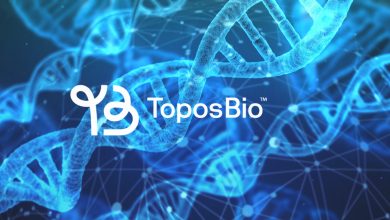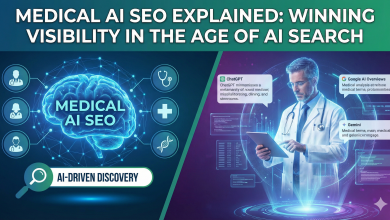AI is rapidly changing the landscape of healthcare marketing, reshaping how providers connect with patients and optimize outreach. As technology advances, marketers face new challenges in balancing efficiency, personalization, and ethical considerations. The ability to harness AI effectively can mean the difference between staying ahead or falling behind in an increasingly competitive industry.
In this article, we will explore AI’s role in healthcare marketing, its impact on patient engagement, the ethical concerns it raises, and how healthcare providers can leverage it to drive growth.
How AI is Transforming Healthcare Marketing Strategies
AI is reshaping healthcare marketing by enabling more targeted, data-driven approaches.
AI is revolutionizing healthcare marketing by enabling personalized patient engagement through sophisticated data analysis. By examining medical histories, online behaviors, and patient preferences, AI allows healthcare providers to tailor content and messages to each patient’s unique needs, significantly boosting satisfaction and marketing effectiveness. This personalization extends beyond basic targeting, as AI algorithms analyze browsing habits and demographic details to ensure healthcare advertisements reach the right individuals at the right time, eliminating wasted ad spending and connecting providers with patients who genuinely need their services.
As the founder of Behavioral Health Partners and Recovered On Purpose, Adam Vibe Gunton recognizes that AI-powered tools can significantly enhance patient engagement by analyzing data to tailor messaging to specific needs. Gunton’s experience in revolutionizing addiction treatment marketing showcases how AI can analyze behavioral patterns and create more responsive outreach campaigns. His work demonstrates how treatment centers can leverage AI-driven insights to reach potential clients with greater precision and empathy, while allowing healthcare providers to focus more deeply on meaningful human interactions.
Using Data to Gain Better Patient Insights
AI-driven analytics allow healthcare marketers to analyze online health content and social media, uncovering patterns in patient behavior. This data helps identify community health issues, enabling the creation of targeted campaigns that directly address specific patient needs.
With access to comprehensive datasets, healthcare providers can craft more personalized communications, resonating with potential patients on a deeper level. Predictive analytics enhance this by anticipating patient preferences, allowing for proactive engagement and more effective strategies.
Personalizing Healthcare Marketing with AI
AI analyzes patient data to create targeted content, improving communication effectiveness. Automating personalized emails, reminders, and health tips based on individual profiles increases patient engagement.
For example, AI can generate customized diet plans for diabetic patients, addressing specific needs and improving outcomes. Predictive insights allow healthcare providers to anticipate patient behavior and implement proactive strategies.
How Predictive Analytics Improves Patient Engagement
Predictive analytics helps healthcare marketers enhance patient engagement by forecasting future healthcare needs based on historical data. This enables targeted communication tailored to specific patient behaviors and needs.
By identifying high-risk patient groups, you can deliver educational content focused on early detection and preventive care. Predictive modeling personalizes messaging, improving the overall patient experience.
On top of that, predictive analytics optimizes resource allocation, allowing you to focus on high-priority patient segments and adjust marketing strategies in real time. This responsiveness increases engagement and drives better patient outcomes.
Real-Time Campaign Optimization With AI
AI enables real-time campaign adjustments, allowing healthcare marketers to adapt messages and channels based on live performance metrics. This ensures campaigns remain responsive to shifts in audience engagement, optimizing effectiveness.
Predictive analytics helps identify emerging trends, enabling more timely and relevant patient targeting.
AI-powered automation streamlines the monitoring of key performance indicators, minimizing missed opportunities and improving ROI.
How Automation Makes Healthcare Marketing More Cost-Effective
AI-driven automation improves healthcare marketing efficiency by automating repetitive tasks, allowing teams to focus on strategic initiatives. This reduces reliance on manual labor, cutting operational costs and improving ROI.
Automation optimizes targeting and performance, ensuring messages reach the right audience without wasting resources. Managing platforms like Google Business Profiles centrally enhances reputation management while maximizing visibility.
Ethical Considerations in AI Utilization
Ensuring patient privacy is a priority, as sensitive data must be securely handled to prevent misuse. Compliance with regulations like HIPAA guarantees legal adherence and helps maintain patient trust.
Avoid AI-driven strategies that could unintentionally discriminate against specific groups. As consumer engagement declines, transparency in your approach is key to rebuilding trust.
It’s also essential to ensure that content generated aligns with accurate, vetted medical information to maintain credibility and protect patient interests.
Future Trends of AI in Healthcare Marketing
In the future, AI in healthcare marketing will emphasize automation and personalization. AI-driven tools will automate tailored email campaigns and provide health advice based on individual health profiles and behaviors.
Predictive analytics will forecast patient needs, enabling proactive engagement with high-risk groups. Real-time optimization will adjust messaging and channels to maximize engagement and ROI.
Automated reporting and analytics will streamline decision-making, improving the efficiency of strategy refinement.
Conclusion
Embracing AI in healthcare marketing is essential for improving patient engagement and operational efficiency. By leveraging data analytics and predictive insights, you can create personalized campaigns that resonate with your audience. However, ethical considerations and patient privacy must remain a priority to build trust and ensure equitable access. Staying informed about future trends will help you optimize strategies and achieve a strong return on investment.





